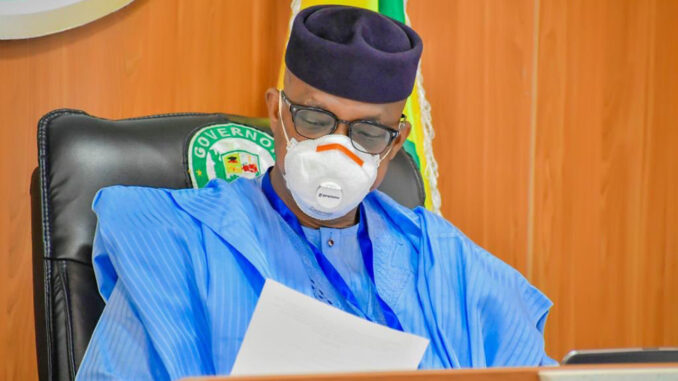
Continued from yesterday
The lawmakers unanimously agreed that granting Governor Abiodun’s request would allow the government to meet the shortfall in the price of crude oil at the international market. Swift reforms initiated to boost revenue, which includes renewed Land Use and Amenities Charge; reorganization of the Ogun State Signage & Advert Agency; ongoing transformation of the Ogun State Internal Revenue Service and implementation of digital initiatives in revenue generation and payments, were also implemented to help diversify revenue base as well as block leakages while enhancing robust financial transparency and accountability.
According to economic pundits and financial analysts, as it is obtainable the world over, it is important for the state to develop a robust financial plan which will cater for short, medium and long-term financial requirements of the state in the foreseeable future. By its very nature, bank loans are short term and expensive and can only cater for recurrent spending. It would be unwise to fund long term infrastructure projects with short term bank loans. As infrastructure projects tend to boost economic activities and generate revenue for the long term, global best practices and conventional wisdom suggest that these long term infrastructure projects are best funded with matching long term bond instruments and financing structures with up to seven-year maturity, relatively lower interest rates and improved regulatory oversight and accountability to ensure judicious utilization of the funds.
An infrastructure bond of this nature requires many stringent regulatory requirements, which ensures that the state pays back through rigorous analyses to evaluate credit rating (done by independent credit agencies), revenue potential and debt service requirements and consider the proportion of the total loan to the balance sheet of the state or its GDP. On all these measures, Ogun State will have to pass the Debt Sustainability Test, without which the regulators such as the Securities and Exchange Commission (SEC), the Federal Government Development Management Office (DMO), Pension Commission (PENCOM) and the Central Bank would not approve the bond.
Lagos is adjudged to be a modern city with lots of infrastructures. For a state generating N30 billion per month internally, it still resorts to the capital market to access infrastructure bond. Lagos State is on its third Bond Programme since 1999, out of which several Bond Series or Issues have been raised by each of the past governors in the state from Babatunde Fashola to the incumbent Babajide Sanwo-Olu who has just raised N100 billion from the earlier programme established before his administration. Virtually all the south-west states have raised Bonds to fund their Infrastructure Deficits. A Bond Programme only establishes the limit of all the Series or Issues that can be raised, it does not mean that the entire Programme will be raised at once or in a financial year as it is subject to the financial capacity of the state at any point.
As in the case of Lagos, A Bond Programme can sometimes be utilized in two administrations of four years each. The advantage of establishing a Programme is that it makes any Issue to be less costly and less time consuming from a regulatory perspective thereby making it more efficient to access the capital market. The World Bank facility called the Ogun State Economic Transformation Project (OGSTEP) is a Programme for Result (P4R) facility which is not an outright loan disbursement but a facility based on the performance of key objectives as a pre-condition before the facility is disbursed.
In addition, given the enormous governance requirements prior to facility disbursements to a state, a Project Preparatory Advance (PPA) is given and in the case of Ogun State, $5 million was disbursed in 2017. The money was meant to put in place governance structures and documentation protocols and requirements that will enable the processing and approval of the real facility. As of May 2019, about 20% of activity had been performed, which was the reason the facility was not approved. Kaduna State that commenced the process at the same time with Ogun State had since obtained the World Bank facility on satisfactory performance of all the conditions. Having worked assiduously for over six months, the World Bank facility was approved for Ogun State only in January 2020.
It speaks to the transparency and accountability of the Abiodun Administration that it got approval in six months what the immediate past administration could not get in two years. It is also important to note that the World Bank facility covers Enabling Business Environment, Education and Capacity Building, Agriculture Value Chain and Public Sector Transformation, all of which are geared towards building human capacity, output and productivity as well as the efficiency of government processes. No single amount has been disbursed or will be disbursed from the facility until the performance of the stipulated conditions.
However, one of the campaign promises made by Abiodun to the people of Ogun State was to provide infrastructure to all parts of the state. He specifically promised to rehabilitate and reconstruct the Ogun State segment of Ijebu-Ode-Epe road, not only to bring the needed relief to the people but also to engender economic development for the state. So far, he has kept the promise which places a premium on integrity with the ultimate aim to allocate resources on projects that have direct and positive impacts on the administration’s mantra of “Building our Future Together” in the belief that full socio-economic benefits cannot be enjoyed by the people in the absence of good road network across the state.
Concluded
Otegbeye, a public commentator, wrote from Ilaro, Ogun state.
END

Be the first to comment